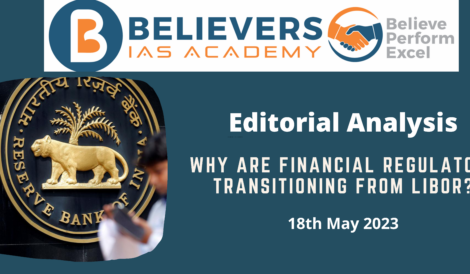- Posted on
- UPSC Static Quiz, June 2023
14 June 2023
Quiz-summary
0 of 5 questions completed
Questions:
- 1
- 2
- 3
- 4
- 5
Information
14th June 2023 Static Quiz for UPSC Prelims
You have already completed the quiz before. Hence you can not start it again.
Quiz is loading...
You must sign in or sign up to start the quiz.
You have to finish following quiz, to start this quiz:
Results
0 of 5 questions answered correctly
Your time:
Time has elapsed
You have reached 0 of 0 points, (0)
| Average score |
|
| Your score |
|
Categories
- Not categorized 0%
- 1
- 2
- 3
- 4
- 5
- Answered
- Review
-
Question 1 of 5
1. Question
2 pointsThe Rajya Sabha has equal powers with Lok Sabha in which of the circumstances mentioned
below?
1.Approval of ordinances issued by the President.
2. Revocation of National emergency
3. Enlargement of jurisdiction of Supreme Court.
4. Consideration of reports of Finance Commission
Select the correct answer from the codes given below:Correct
● Option C is correct.
● In the following matters, the powers and status of the Rajya Sabha are equal to that of the Lok
Sabha:
1. Introduction and passage of ordinary bills.
2.Introduction and passage of Constitutional amendment bills.
3. Introduction and passage of financial bills involving expenditure from the Consolidated Fund of
India.
4. Election and impeachment of the president.
5. Election and removal of the Vice-President. However, Rajya Sabha alone can initiate the
removal of the vice-president. He is removed by a resolution passed by the Rajya Sabha by a
special majority and agreed to by the Lok Sabha by a simple majority.
6.Making recommendation to the President for the removal of Chief Justice and judges of
Supreme
Court and high courts, chief election commissioner and comptroller and auditor general.
7. Approval of ordinances issued by the President. (Hence,statement 1 is correct)
8. Approval of proclamation of all three types of emergencies by the President.
9. Selection of ministers including the Prime Minister. Under the Constitution, the ministers
including the Prime Minister can be members of either House. However, irrespective of their
membership, they are responsible only to the Lok Sabha.
10.Consideration of the reports of the constitutional bodies like Finance Commission, Union Public
Service Commission, comptroller and auditor general, etc.(Hence,statement 4 is correct.)
11. Enlargement of the jurisdiction of the Supreme Court and the Union Public Service
Commission.(Hence,statement 3 is correct)
● The emergency must be revoked if the Lok Sabha passes a resolution by a simple majority
disapproving its continuation.Hence,statement 2 is incorrect.Incorrect
● Option C is correct.
● In the following matters, the powers and status of the Rajya Sabha are equal to that of the Lok
Sabha:
1. Introduction and passage of ordinary bills.
2.Introduction and passage of Constitutional amendment bills.
3. Introduction and passage of financial bills involving expenditure from the Consolidated Fund of
India.
4. Election and impeachment of the president.
5. Election and removal of the Vice-President. However, Rajya Sabha alone can initiate the
removal of the vice-president. He is removed by a resolution passed by the Rajya Sabha by a
special majority and agreed to by the Lok Sabha by a simple majority.
6.Making recommendation to the President for the removal of Chief Justice and judges of
Supreme
Court and high courts, chief election commissioner and comptroller and auditor general.
7. Approval of ordinances issued by the President. (Hence,statement 1 is correct)
8. Approval of proclamation of all three types of emergencies by the President.
9. Selection of ministers including the Prime Minister. Under the Constitution, the ministers
including the Prime Minister can be members of either House. However, irrespective of their
membership, they are responsible only to the Lok Sabha.
10.Consideration of the reports of the constitutional bodies like Finance Commission, Union Public
Service Commission, comptroller and auditor general, etc.(Hence,statement 4 is correct.)
11. Enlargement of the jurisdiction of the Supreme Court and the Union Public Service
Commission.(Hence,statement 3 is correct)
● The emergency must be revoked if the Lok Sabha passes a resolution by a simple majority
disapproving its continuation.Hence,statement 2 is incorrect. -
Question 2 of 5
2. Question
2 pointsIn which of the following emergency situation, repeated parliamentary approval is required for its
continuation?
1. National Emergency under Article 352
2. President rule under Article 356
3. Financial Emergency under Article 360
Select the correct answer from the codes given below:Correct
● Option A is correct.
● In case of National Emergency,Once the proclamation is approved, it continues to be in force for
six months.Such proclamations can be extended indefinitely, however, each extension should be
approved by the Parliament through a special majority (44th amendment act, 1978).
Hence,statement 1 is correct.
● A proclamation imposing President’s Rule must be approved by both Houses of Parliament
within 2 months from the date of its issue. If approved by both Houses of Parliament, the
President’s Rule continues for 6 months. It can be extended for a maximum period of 3 years with
the approval of the Parliament, every 6 months.Hence,statement 2 is correct.
● Once approved by the parliament, the financial emergency continues indefinitely till it is
revoked. Implying, there is no maximum prescribed maximum period for its operation and there is
no repeated need for parliamentary approval for its continuation.Hence,statement 3 is incorrect.Incorrect
● Option A is correct.
● In case of National Emergency,Once the proclamation is approved, it continues to be in force for
six months.Such proclamations can be extended indefinitely, however, each extension should be
approved by the Parliament through a special majority (44th amendment act, 1978).
Hence,statement 1 is correct.
● A proclamation imposing President’s Rule must be approved by both Houses of Parliament
within 2 months from the date of its issue. If approved by both Houses of Parliament, the
President’s Rule continues for 6 months. It can be extended for a maximum period of 3 years with
the approval of the Parliament, every 6 months.Hence,statement 2 is correct.
● Once approved by the parliament, the financial emergency continues indefinitely till it is
revoked. Implying, there is no maximum prescribed maximum period for its operation and there is
no repeated need for parliamentary approval for its continuation.Hence,statement 3 is incorrect. -
Question 3 of 5
3. Question
2 pointsConsider the following statements with respect to the National Company Law Appellate Tribunal
(NCLAT):
1. It is a non statutory body created by an excecutive order.
2. It can hear appeal against the orders passed by Competition Commission of India.
3. The Chairperson of NCLAT shall be a person who is or has been a Chief Justice of the Supreme
Court or a High Court.
Which of the statements given above is/are correct?Correct
● Option B is correct.
● National Company Law Appellate Tribunal (NCLAT) was constituted under Section 410 of the
Companies Act, 2013 for hearing appeals against the orders of National Company Law Tribunal(s)
(NCLT). Hence statement 1 is incorrect.
● NCLAT is also the Appellate Tribunal for hearing appeals against the orders passed by
Insolvency and Bankruptcy Board of India. It is also the Appellate Tribunal to hear and dispose of
appeals against any direction issued or decision made or order passed by the Competition
Commission of India (CCI) . Hence statement 2 is correct.
● NCLAT consists of a chairperson and such number of Judicial and Technical Members, not
exceeding eleven, as the Central Government may deem fit. The chairperson shall be a person
who is or has been a Judge of the Supreme Court or the Chief Justice of a High Court. Hence
statement 3 is incorrect.Incorrect
● Option B is correct.
● National Company Law Appellate Tribunal (NCLAT) was constituted under Section 410 of the
Companies Act, 2013 for hearing appeals against the orders of National Company Law Tribunal(s)
(NCLT). Hence statement 1 is incorrect.
● NCLAT is also the Appellate Tribunal for hearing appeals against the orders passed by
Insolvency and Bankruptcy Board of India. It is also the Appellate Tribunal to hear and dispose of
appeals against any direction issued or decision made or order passed by the Competition
Commission of India (CCI) . Hence statement 2 is correct.
● NCLAT consists of a chairperson and such number of Judicial and Technical Members, not
exceeding eleven, as the Central Government may deem fit. The chairperson shall be a person
who is or has been a Judge of the Supreme Court or the Chief Justice of a High Court. Hence
statement 3 is incorrect. -
Question 4 of 5
4. Question
2 pointsConsider the following statements in context of Election Deposit :
1. As per Representation of People Act 1951, a canditate contesting Parliamentary election shall
make a deposit of Rs 25,000.
2. As per Representation of People Act 1951, Members of Schedule Tribe does not require to
make a security deposit.
3. If the candidate wins the election but does not get 1/6 of the total valid votes, then his security
deposit is confiscated.
Which of the statements given above is/are correct ?Correct
● Option A is correct.
● As per Section 34 1 (a) of the Representation of the People Act,1951; it is mandatory for the
general candidates to deposit security amount of Rs.25000 in case of Parliamentary constituency
and Rs. 10, 000 to fight an election in Assembly Constituency. Hence, statement 1 is correct.
● As per Sec. 34 (1) (b) candidates belonging to Scheduled Caste / Scheduled Tribe have to
deposit only half of the amount for these two elections. Hence,statement 2 is incorrect.
● If the candidate wins the election but does not get 1/6 of the total valid votes, then his security
deposit is returned.Hence,statement 3 is incorrect.Incorrect
● Option A is correct.
● As per Section 34 1 (a) of the Representation of the People Act,1951; it is mandatory for the
general candidates to deposit security amount of Rs.25000 in case of Parliamentary constituency
and Rs. 10, 000 to fight an election in Assembly Constituency. Hence, statement 1 is correct.
● As per Sec. 34 (1) (b) candidates belonging to Scheduled Caste / Scheduled Tribe have to
deposit only half of the amount for these two elections. Hence,statement 2 is incorrect.
● If the candidate wins the election but does not get 1/6 of the total valid votes, then his security
deposit is returned.Hence,statement 3 is incorrect. -
Question 5 of 5
5. Question
2 pointsConsider the following statements with respect to various types of writs :
1. Mandamus will not lie against a private organisation.
2. Mandamus can be used to enforce a contractual obligation.
3. Any public minded person can be a petitioner to move the Court to obtain the writ of Quo
Warranto.
4. Certiorari can be issued against lower court but not against tribunal by higher court.
Which of the statements given above is/are correct ?Correct
● Option C is correct.
● The writ of mandamus cannot be issued:
– against a private individual or body. Hence,statement 1 is correct.
– to enforce departmental instruction that does not possess statutory force.
– when the duty is discretionary and not mandatory.
– to enforce a contractual obligation. Hence,statement 2 is incorrect.
– against the president of India or the state governors.
– against the chief justice of a high court acting in a judicial capacity.
The writ of mandamus can be issued against any public body, a corporation, an inferior court, a
tribunal, or government for the same purpose.
● Quo Warranto means ‘by what authority or warrant’. It is issued by the court to enquire into the
legality of the claim of a person to a public office. Hence, it prevents illegal usurpation of public
office by a person. The writ can be issued only in case of a substantive public office of a permanent
character created by a statute or by the Constitution. It cannot be issued in cases of ministerial
office or private office. Any interested person and not necessarily the aggrieved person can seek
Quo Warranto writ.Hence,statement 3 is correct.
●Certiorari is issued by a higher court to a lower court or tribunal, either to transfer a case
pending with the latter to itself or to squash the order of the latter in a case. It is issued on the
grounds of excess of jurisdiction or lack of jurisdiction or error of law. Thus, unlike prohibition,
which is only preventive, certiorari is both preventive as well as curative.Hence,statement 4 is
incorrect.Incorrect
● Option C is correct.
● The writ of mandamus cannot be issued:
– against a private individual or body. Hence,statement 1 is correct.
– to enforce departmental instruction that does not possess statutory force.
– when the duty is discretionary and not mandatory.
– to enforce a contractual obligation. Hence,statement 2 is incorrect.
– against the president of India or the state governors.
– against the chief justice of a high court acting in a judicial capacity.
The writ of mandamus can be issued against any public body, a corporation, an inferior court, a
tribunal, or government for the same purpose.
● Quo Warranto means ‘by what authority or warrant’. It is issued by the court to enquire into the
legality of the claim of a person to a public office. Hence, it prevents illegal usurpation of public
office by a person. The writ can be issued only in case of a substantive public office of a permanent
character created by a statute or by the Constitution. It cannot be issued in cases of ministerial
office or private office. Any interested person and not necessarily the aggrieved person can seek
Quo Warranto writ.Hence,statement 3 is correct.
●Certiorari is issued by a higher court to a lower court or tribunal, either to transfer a case
pending with the latter to itself or to squash the order of the latter in a case. It is issued on the
grounds of excess of jurisdiction or lack of jurisdiction or error of law. Thus, unlike prohibition,
which is only preventive, certiorari is both preventive as well as curative.Hence,statement 4 is
incorrect.
Leaderboard: 14 June 2023
maximum of 10 points
Pos.
Name
Entered on
Points
Result
Table is loading
No data available




